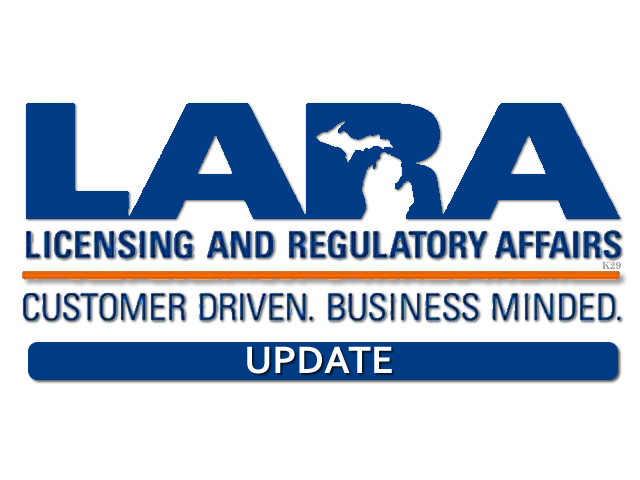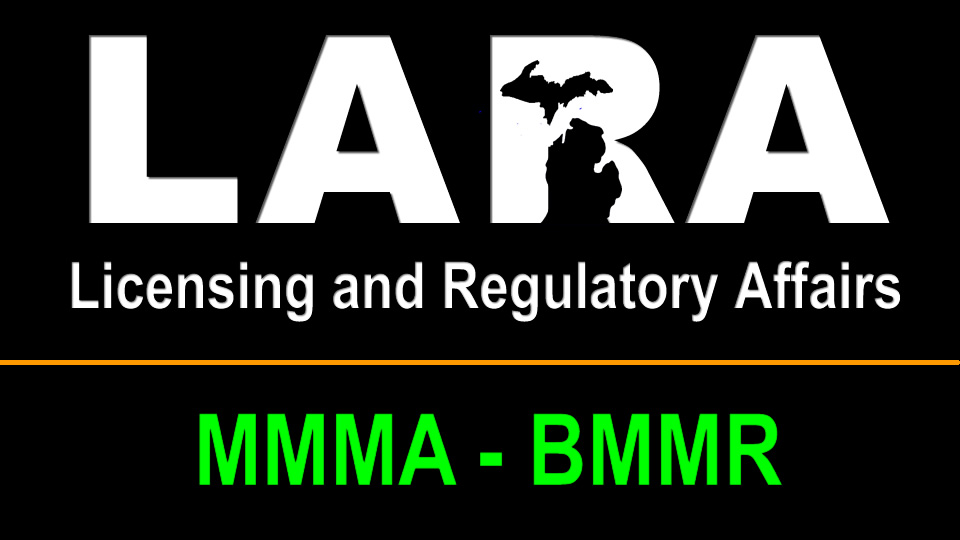
Jul 9, 2018 | Blog, Michigan Medical Marhuana Regulation, Michigan Medical Marijuana Act
A new advisory bulletin has been issued by the Bureau of Medical Marihuana.
Proficiency Testing Guidelines for Safety Compliance Facilities.
Released July 5, 2018
The Medical Marihuana Facilities Licensing Act (MMFLA) and the May 30, 2018 Emergency Rules require the Dept of Licensing and Regulatory Affairs to establish a proficiency testing program and designate safety compliance facility participation.
A safety compliance facility shall analyze proficiency test (PT) samples using the same procedures with the same number of replicate analyses, standards, testing analysts and equipment as used for marihuana product testing. The following proficiency testing must be performed by Safety Compliance Facilities (SCFs) annually:
- SCFs will need to complete one set of PT samples for all tests on their scope of accreditation.
- Proficiency test results must be conveyed as numerical accuracy percentages, not simply as PASS/FAIL results. Actual PASS/FAIL results must be calculated based on accuracy thresholds generated by reproducibility studies specific to each assay.
- Safety Compliance Facilities may use any ISO 17043 accredited laboratory for their testing needs. There are several ISO 17043 accredited laboratories where samples can be purchased, including The Emerald Test, NSI Lab Solutions, Sigma-Aldrich and Absolute Standards Inc.
- For parameters where there are currently no commercially available PT samples, SCFs should send samples (as blind samples) to another licensed SCF who performs testing by the same or similar methodology. The results should then be compared. A passing grade for the PT requires a score of at least 80%.
- Copies of all proficiency testing (both acceptable and unacceptable) results need to be sent to the department for review via email: LARA-BMMR-Enforcement@michigan.gov. Please indicate in the subject line “Proficiency Testing Results for Review-SCF Name.”
It is also available at the following link…PDF Document

Jul 9, 2018 | Blog, Michigan Medical Marhuana Regulation
What does the Medical Marihuana Licensing Board do?
The Medical Marihuana Licensing Board is comprised of 5 members, appointed by the Governor (with input from the Senate Majority Leader and the Speaker of the House), to administer the Medical Marihuana Facilities Licensing Act. This includes reviewing applications, issuing licenses, revoking/suspending licenses, renewing licenses, and investigating individuals who are applying for licensure or complaints received about someone who holds a license.

Jul 9, 2018 | Blog, Michigan Medical Marhuana Regulation
Michigan communities that have opted in to the MMFLA
This is an unofficial document compiled by Bureau of Medical Marihuana Regulation staff for informational purposes only. This is a working document that may be revised. This document will be updated weekly.
Document Link
Updated as of 6/15/18
Komorn Law has represented numerous clients through the legal chaos of starting up a business in the Michigan Medical Marihuana Industry.
Contact Us For More Information.
800-656-3557

Jul 8, 2018 | Blog, Michigan Medical Marhuana Regulation
What will the costs be for a license?
The initial costs of a license at the state level include the application fee, the regulatory assessment. Additional costs at the state level are authorized under the Medical Marihuana Facilities Licensing Act (MMFLA) and may be required. An applicant may also need to pay a fee to its municipality of up to $5000.
Any municipality fee is not determined or collected by BMMR, applicants will need to find out this information from their local municipality.
Section 401(5) of the Medical Marihuana Facilities Licensing Act (MMFLA) requires the setting of application fee amounts for each category and class of license by rule.
State License Application Fee: The application fee is non-refundable and offsets the cost for LARA, the Michigan State Police (MSP), and/or contract costs for investigative services for conducting the background investigation of those applying for licenses.
The nonrefundable application fee, which must be submitted before an application will be processed, will be $6000.
State Annual Regulatory Assessment: The regulatory assessment is due prior to the issuance of each license and may vary depending on the number of licenses anticipated to be issued. The regulatory assessment does not apply to safety compliance facilities.
This assessment offsets operational costs and other statutory mandates including LARA’s costs to implement the act. It also offsets the cost of medical-marihuana-related services provided to LARA by the Michigan Attorney General’s office, MSP, and the Dept. of Treasury. By statute, the assessment must also provide $500,000 annually to LARA for licensing substance abuse disorder programs in addition to five percent of the other state departments’ costs to the Michigan Department of Health and Human Services for substance abuse-related expenses.
LARA is currently determining the annual regulatory assessment for fiscal year 2018 for each of the five license categories authorized by MMFLA. Grower A licenses are capped, by statute, at $10,000. Grower B-C, Processor, Transporter, and Provisioning Center licenses will be dependent on the number of total licenses subject to assessment and could be as low as $10,000 or as high as $57,000. The exact amounts of the regulatory assessments are not available at this time.
State Additional Costs: If required, the applicant may need to pay additional costs. The MMFLA authorizes the following:
- Late renewal fees as established by rule (Sec. 402(11))
- 3% tax on each provisioning center’s gross retail receipts (Sec. 601(1))
- Actual costs of investigation and processing that exceed the application fee paid by an applicant (Sec. 401(5))

Jul 8, 2018 | Blog, Michigan Medical Marhuana Regulation
Where can I find more information on each type of license?
Details on each license category can be found in Part 5 of the Michigan Medical Marihuana Facilities Licensing Act, 2016 PA 281. Here:
Grower license: Section 333.27501
Processor license: Section 333.27502
Secure transporter license: Section 333.27503
Provisioning center license: Section 333.27504
Safety compliance facility license: Section 333.27505


